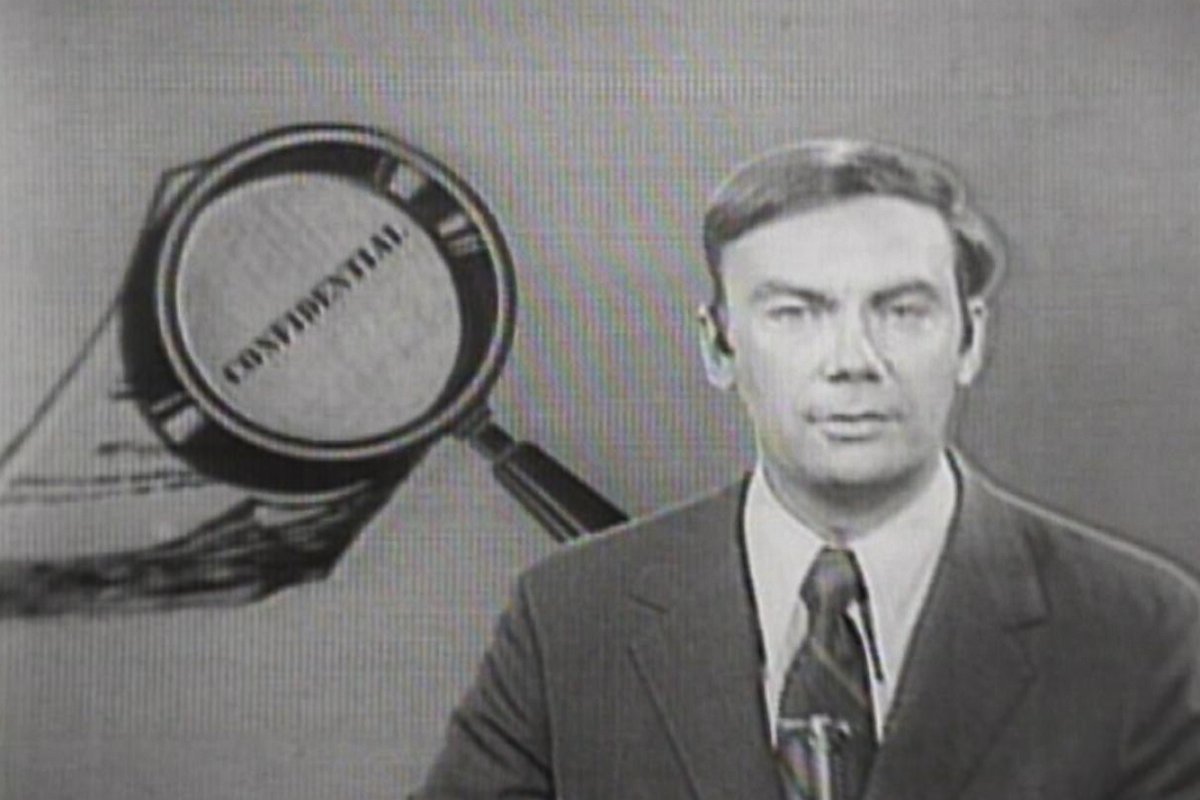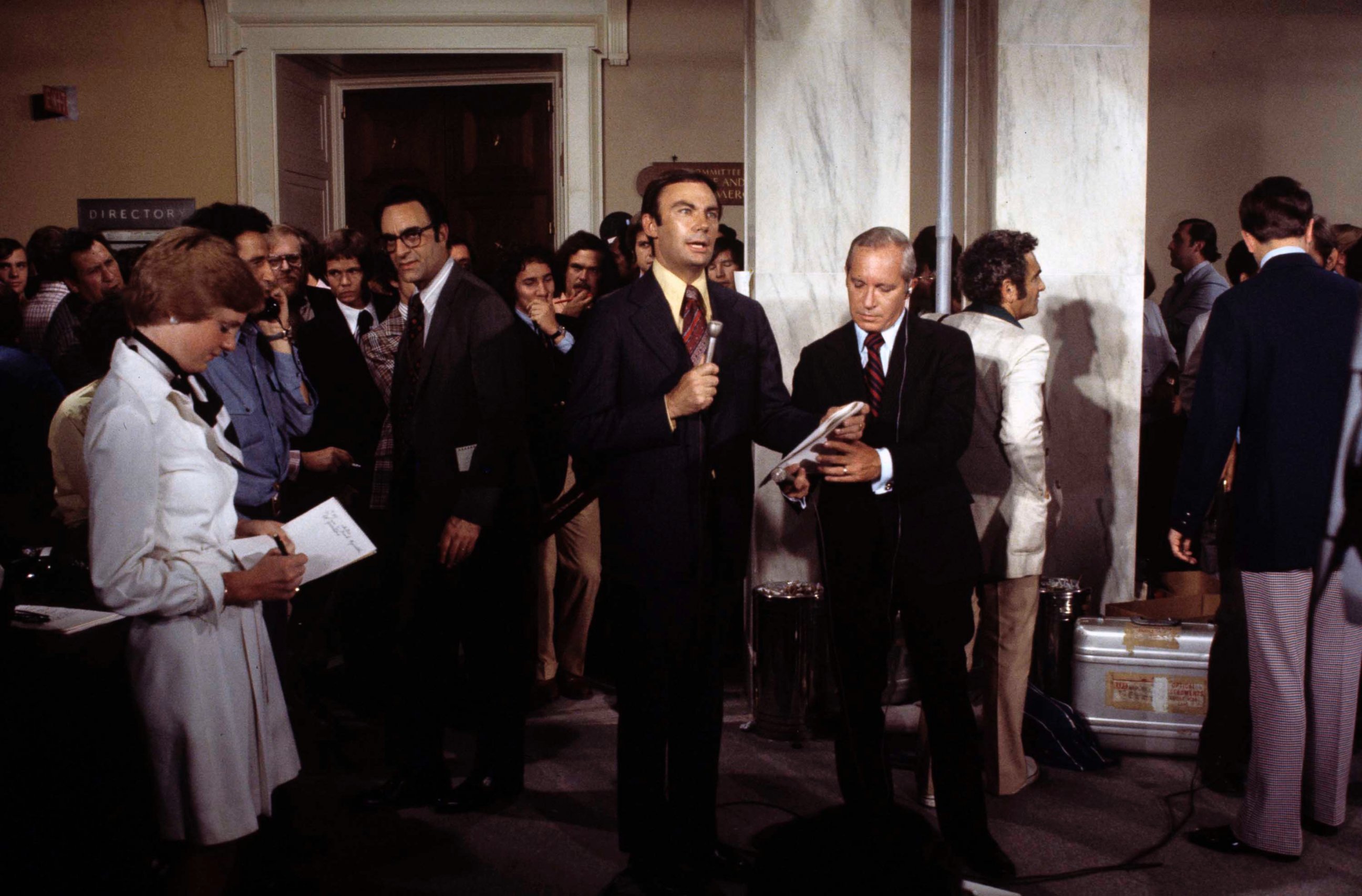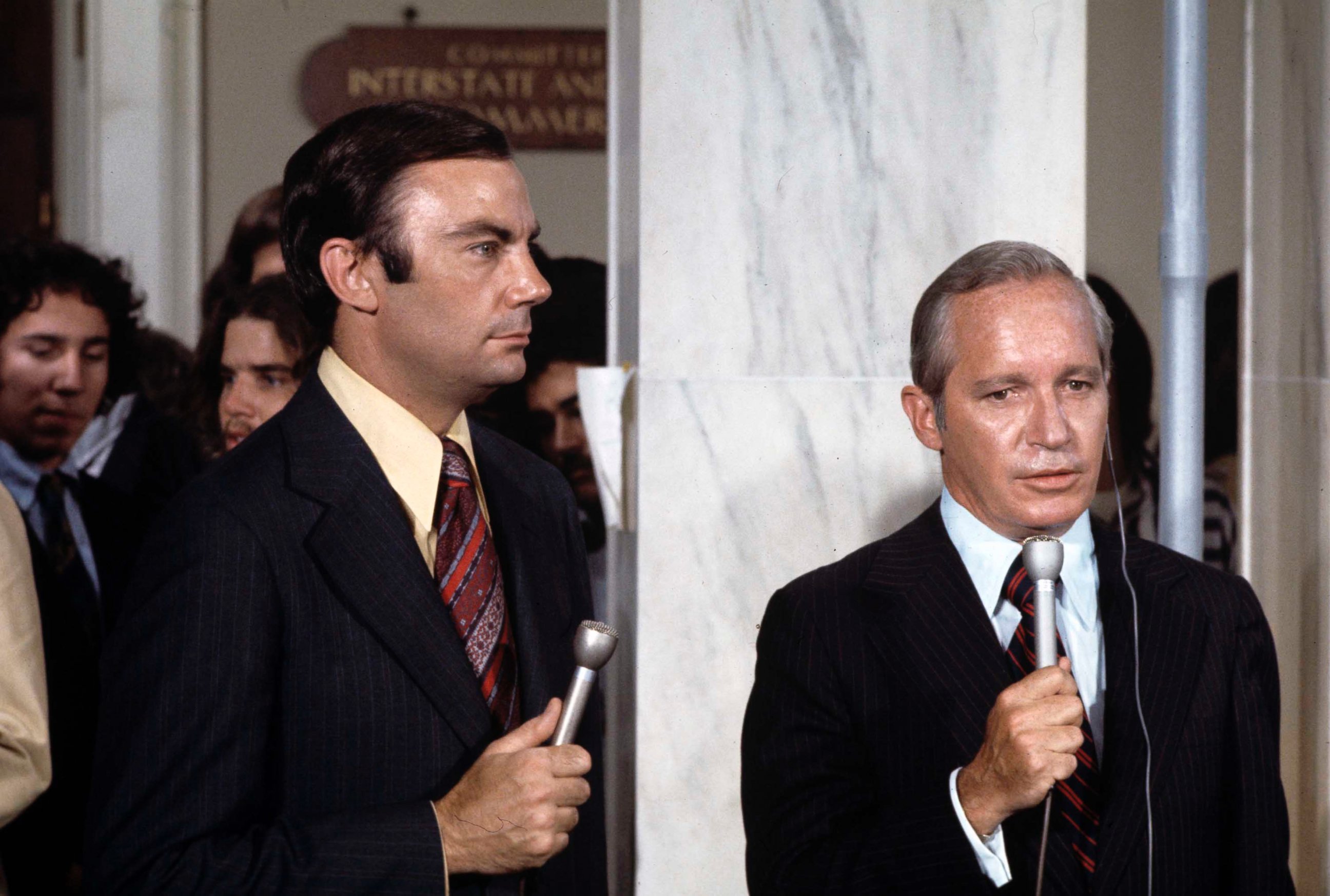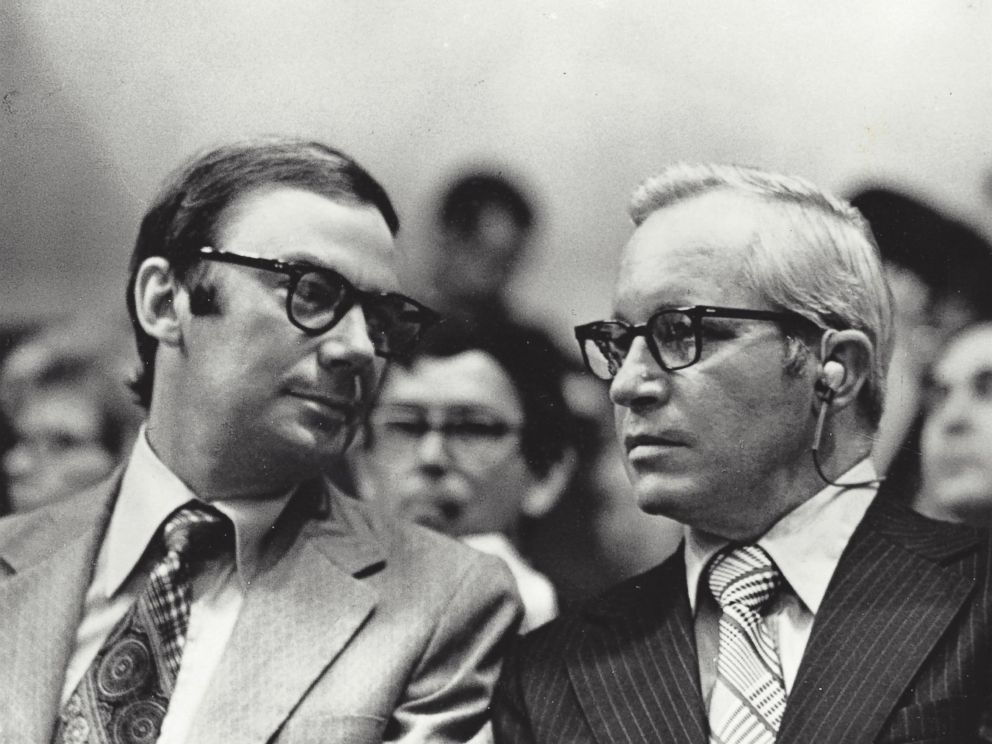Lessons from Watergate: Reporter's notebook
Former ABC News anchor Sam Donaldson reflects on reporting the Watergate scandal
— -- On the morning of June 17, 1972, I got on an airplane in Washington, D.C., and headed for New York, part of my duties as the anchor of the Saturday ABC network news. By chance, I sat down next to Joe Mohbat, the spokesman for the Democratic National Committee.
"Heard about the break-in at our headquarters?" Joe asked.
I hadn’t.

He told me that five men had been caught by the police in the early morning hours inside the Democratic National Committee headquarters at the Watergate office building complex. What were they doing there? Obviously, if they had been looking for money they would have tried to rob a bank or a jewelry store, but the headquarters of a political party?
We both speculated it was the work of people looking for information to help the party's main opponent in that November’s election, President Richard Nixon, who was seeking a second term.
But jumping to that obvious conclusion was a long way from immediately believing that Nixon himself had anything to do with this burglary or understanding that a forthcoming investigation of more than two years would end by forcing Nixon to resign from his office, one step ahead of the sheriff.
Assigned by ABC News at the outset to cover Watergate, I had no idea how important it would become in the history of our country.

Watergate is a story about how ordinary people in and out of government, working within the Constitutional and legal framework of our system, were more powerful than a rogue president and all the forces at his command.
Begin with Frank Wills, a private security guard, age 24. On his first early morning rounds, he found the lock on a back door of a Watergate office building taped open. He removed the tape and walked on. But when he returned 30 minutes later and found the lock had been retaped open, he called the police. Two plainclothes officers responded and, searching each floor with their flashlights, found the culprits hiding behind desks in the Democratic National Committee office.
But for Wills, there would have been no Watergate. For his actions that night, his boss gave him a $2.50 an hour raise.
The press went to work, notably The Washington Post, which began to follow a money and evidence trail that led to the Committee to Re-elect the President. Great stuff. Despite Democratic presidential candidate George McGovern’s efforts to make use of it, the public reacted with a great yawn. The Nixon team had been effective in poo-pooing the importance of what it called "a third rate burglary" and in attacking an "unfair and vicious" press for trying to smear a great and innocent president.
The movie "All the President’s Men" ends with Post reporters Bob Woodward and Carl Bernstein typing away, and on the television in the background you see Nixon taking the oath for a second term after a landslide re-election victory.
Watergate might have ended there except for the federal government system, which began to kick in.

A federal judge named John J. Sirica, who presided over the trial of the burglars, had read the stories, and no fool, he concluded that these five burglars were on a political mission -- looking for what and ordered by whom?
He told them he would "throw the book" at them if they didn’t come clean and one did. I was in court the day that Frank McCord’s letter was read, in which he acknowledged that "higher ups" in the Nixon re-election campaign were involved.
How high up? The game was now afoot.
The United States Senate, alarmed by the implications of McCord’s statement, the continuing stream of new revelations in the press and Nixon’s own defensive actions in forcing the resignations of his two top aides and in firing his chief White House counsel, formed a select committee to investigate.
The Senate’s new committee took testimony from many witnesses, but there were two who made a difference.
John Dean, the White House counsel whom Nixon had just fired, testified that he had helped the president try to cover up the burglary’s real connections. Dean said Nixon, in an Oval Office meeting, had agreed to raise hush money for the burglars. The White House called Dean a liar and asked whom people should believe, him or the president of the United States?
The second key witness was a man practically no one had ever heard of. His name was Alexander Butterfield, a minor aide to White House chief of staff Bob Haldeman. Among others, Butterfield was called by the Senate committee staff for a routine interview to see if he had anything to say that was worth the committee’s time.
In fact, Butterfield had a deadly secret, which he had decided he would keep unless he was asked a question that he had to answer under threat of perjury. By a fluke, a Republican staffer asked him if he knew of any recording system in the Oval Office.
Well, it was Butterfield who had been ordered by Haldeman to oversee the installation of the taping system there (and elsewhere) and he felt compelled to tell the truth.
"Yes, there is one," he told the staffer.
On the Monday when Butterfield revealed the existence of a taping system before the committee, in open session, all of us reporters in the Senate Caucus Room looked at each other with a look that said, "The fat is in the fire now." Being able to hear the exchange between Dean and Nixon on alleged hush money would resolve who was telling the truth. The implications of that were earthshaking.
The Senate had also ordered a special prosecutor to be appointed by Attorney General Elliott Richardson to investigate the Watergate burglary. The man appointed, a Harvard professor named Archibald Cox, immediately requested the tapes from the White House.
Nixon refused to turn them over. On Saturday, Oct. 20, 1973, at a news conference that morning, Cox said he would seek a court order requiring the president to do so. We knew a make-or-break showdown was underway.
I went over to the Justice Department to await developments. You could feel the tension. Late in the afternoon, a rumor began to circulate that Richardson had resigned rather than obey an order from the president to fire Cox. I encountered William Ruckelshaus, the deputy attorney general, as he was leaving the building and asked him if it was possible that the AG had resigned.
"Yes," he answered. "That is possible."

Wow. What a scoop. I didn’t have the sense to ask Ruckelshaus, the next official in line, if he had also resigned rather than fire Cox. Turned out, he had. But the third ranking Justice Department official, the solicitor general -- and later a federal judge -- Robert Bork, carried out Nixon’s order.
The day’s events were dubbed the Saturday Night Massacre, but the real victim of the day was the president himself. What he had done caused the majority of the pubic to finally turn against him on the Watergate matter.
It was those events that convinced me Nixon was consciously committing the crime of obstruction of justice. A reporter’s job is to fairly report the facts as they can be known without coloring or slanting them by his or her personal opinion. I continued to try to do that, but you would have to have had your head in the sand not to believe that an innocent person with tapes that might prove his innocence would gladly turn them over instead of firing the investigator who wanted them.
The next year, while the White House fought in the courts to keep the tapes secret, the House of Representatives began an impeachment investigation aimed at removing the president from office.
The chairman of the Judiciary Committee -- a little known congressman from Newark, New Jersey, named Peter Rodino, who had never before made much of an impression -- rose to the occasion and steered his committee to an affirmative vote on three articles of impeachment.
On July 27, another Saturday, the committee took the first vote -- on Article One, which accused Nixon of obstruction of justice. The most dramatic moment in the Watergate story for me was that day when, at approximately 7:05 p.m., Rodino ordered his clerk to call the roll on Article One. For years afterward, I could recite from memory the vote in order of the 38 committee members.
All the committee’s 21 Democrats voted "aye," and so did six of the 17 committee Republicans. The well of Republican Party support for Nixon was rapidly drying up. Still, he had a stubborn group of congressional defenders.
But it was three days before that that the Supreme Court had unanimously ordered the president to turn over the tapes. Nixon really had no choice but to obey, and he did so on Aug. 5.
On one of the tapes, later termed the smoking gun, Nixon and Haldeman are heard six days after the burglary outlining a cover-up scheme that would have had the CIA wave the FBI off the investigation on the grounds that national security was involved. That was a lie, and hearing the two men try to make it fly nailed down the charge of obstruction of justice that no one could explain away.
And then the president’s congressional supporters, who had still been resisting the damning facts as they accumulated, accepted the truth. Senior Republicans, led by Sen. Barry Goldwater, the party's 1964 presidential nominee, went to the White House to inform Nixon that he would surely be convicted by the Senate and removed from office.
Two days later, Nixon resigned from the presidency.
He had been brought down not by the press, not by the Democrats, not by his enemies but because of his own wrong and illegal actions. He was brought down by the constitutional and legal framework of the American system, supported by the American people.
In the end, the lessons of Watergate contain both an assurance and a warning.
The assurance is that the American system works. The warning is that, no matter how high or important the post, if one betrays a public trust, the system will be brought into play.
Although, in an imperfect world, justice does not always prevail, Watergate demonstrates that the odds of beating the system are strongly against a guilty person.
After what happened to Richard Nixon, only a fool would take the chance.



